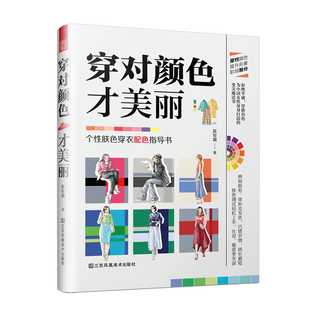 间隔年
间隔年考研英语怎么复习?英一英二有啥区别?
英语二比英语一简单,如果同样基础,同样复习准备,两个分差在10分左右。两个的区别主要有2个方面①题型。英一英二都有完型,阅读,新题型,翻译,大小作文5种题型。其中英一的新题型备选有3种考法,小标题,排序和段落匹配;英二的只有小标题和段落匹配两种。翻译题英一是一篇文章里挑5个句子翻译,英二是翻译小短文。大作文英一是图片作文,英二是图表作文。②题目难度。英一所有文章里的长难句都略多于英二,文章整体比英二长。英一的文章题材学术性较强,专有名词比较多,英二的文章更加生活化,尤其翻译题最明显。英一的作文描述图片,可以提前准备的句型比较少,英二的图表相对简单,数据无非是上升下降,几倍增长这些~而且可切入角度更多PS:英一英二难易程度的差别主要就在这两个方面~参考书都有啥?单词书:《考研词汇闪过》单词书不分一二,考纲都是一样的。这个书比较好的是它没有按照常规abc字母顺序排列单词,而是把所有考纲单词按照考频分类,像频考词,基础词,偶考词这些,这样背的时候有重点,省时间,记忆压力会小很多。真题里本来也不是每个单词都考,这样一分就科学很多。真题书:英一《考研真相》英二《考研圣经》,是讲解很详细的真题书,所有句子都有图解的语法结构分析。基础不好或者一开始做真题,用这种细致的书能省很多时间。关于考研英语怎么复习,大家要先确定自己考英一还是英二,选合适的真题书,制定合理的复习计划,这样复习更容易~
 能勿失乎
能勿失乎考研英语结束,英一英二都很难,考生:十年来最难,是我不配
上午政治考完,大家都是非常嗨皮的,直呼肖秀荣大大牛逼,押中了好多题,想着今年政治是稳了。然后,下午走出英语考场,画风就变了……毫无疑问,英语也上了热搜,但跟政治不同的是,英语太难了!部分网友观点:听说早上有多快乐下午就有多悲伤?1.想读读不懂,想选选不出,上午考完政治有多开心下午考英语就有多心凉,考场上都差点哭出来,为什么这么难!2.英语一瞬间吧我早上的政治拉没了,开始写第一个阅读理解的那一瞬间,简直想放弃,三四遍硬是选不出来,我滴乖,绝对是这十年来最难的,没有之一,明天上午数学要是再难我就哭了!3.上午直呼肖秀荣牛逼,下午英语难得我头都掉了,人生第一次考英语没写完。4.早上考完政治:肖秀荣牛逼!下午考完英语:是我不配了,既然阅读让我看不懂,就休想看懂我的翻译!5.考得我一身冷汗,看到大家说难我也放心了!6.还能说啥,一篇阅读理解都没有读懂,全程连蒙带猜,背了好几天还加一个夜班的大小作文模板,全部套不上,我感觉30分悬了!考研英语到底有多难?大家都知道研究生现在是分为学术型硕士和专业型硕士的,一般情况下,学硕考的是英语一,专硕考的是英语二,有人说英语二难度基本与英语六级持平,英语一就是非常难了!其实从考研英语满分100分,可国家线只是在50分左右的情况下依然还有很多人都过不去就可以看出来有多难。总的来说就是词汇量非常大,一句话所有单词拆开来都认识,合起来就完全不知道什么意思了,猜的情况下也很难能够猜对。说在最后不管考研英语现场有多么惊心动魄,大家也都坚持考完了,其实也不用过于担心太难了,因为你觉得难了,别人大几率也不会觉得简单,大家都是一个难,相当于还在一个起跑线上。另一方面也告诉我们,考研英语还是需要长期准备的,更在于平时的积累。不过眼下更重要的还是收拾一下心情,稍微休息一下,然后复习明天足足有300分的专业课!你有什么看法?欢迎在评论区说出自己的观点!
 摇摇欲坠
摇摇欲坠考研英语一与英语二的区别,你看懂了吗?
考研英语分为英语一和英语二,那么二者应该怎么有针对性的复习呢?你是否知晓英语一和英语二的难度区别?让我接下来为您揭晓。难度区别英语一:英语一的难度大致在英语六级-专业英语四级之间。通俗点讲,英语6级过线的同学,一般有能力考到英语一60左右的分数。英语二:英语二的难度大致和英语四级相当,一般英语四级过线同学,英语二可以考到60左右;六级过线同学考70是没有太大问题的!复习策略英语一:英语一的得分重点在阅读,区分在翻译和作文,所以有针对性的训练阅读和作文是得高分很重要的一环,同学们在复习的过程中要时刻引起注意!英语二:英语二难度不大,但是阅读很容易丢分,往年同学们对这块重视度不够导致实际得分和自己的预想分数差别很大。值得引起大家的注意!完全适用英语一的专业学硕:所有学术硕士全部适用(十三门类)。其中,外国语言文学专业第二外语、单独考试外语可由招生单位设置自命题科目,也可选用全国统考科目。专硕:9类专业硕士适用(法律硕士含法学专业与非法学专业)临床医学(1051)、口腔医学(1052)、公共卫生(1053)、护理(1054)、中医(1057)、法律(非法学)(035101)、法律(法学)(035102)、汉语国际教育(0453)、建筑学(0851)、城市规划(0853)完全适用英语二的专业学硕:无专硕:7类专业硕士适用工商管理(1251)、公共管理(1252)、会计(1253)、旅游管理(1254)、图书情报(1255)、工程管理(1256)、审计(0257)选用英语一或英语二的专业学硕:无专硕:23类专业硕士适用金融(0251)、应用统计(0252)、税务(0253)、国际商务(0254)、保险(0255)、资产评估(0256)、社会工作(0352)、警务(0353)、教育(0451)、体育(0452)、应用心理(0454)、新闻与传播(0552)、出版(0553)、文物与博物馆(0651)、工程(0852)、农业(0951)、兽医(0952)、风景园林(0953)、林业(0954)、药学(1055)、中药学(1056)、军事(1151)、艺术(1351)不适用英语一或英语二的专业学硕:无专硕:翻译(0551)
 春咲
春咲考研英语备考经验:英二刷英一真题or蒋军虎?
问题:考研英语备考经验:快七月份,考研英语二没准备,是刷英语一的真题好还是刷蒋军虎阅读精讲精练?我当时也是从暑假开始刷题的,7月份开始肯定不晚。不过我暑假之前虽然没做题,但是单词我已经背了两个月了。要是单词也没背的话,你之后几个月可能要辛苦一点儿了,暑假时间一定得好好抓住,没人打扰,我身边好多研友都是靠暑假逆袭的,暑假前觉得自己成绩可烂,考研没啥希望,经过一个暑假的练习,实力就出来了。我暑假前就是,四级考了3次,463分,六级直到考研前都没过。但暑假我就一直学习,每天早早去省图占座,毕竟公共场合,晚上自己的东西啥还是要拿走的。所以每天为了有位置,就只能早起。一待就是一整天。一个暑假下来,感觉自己基础真的扎实了很多。开学后也没懈怠,反正就是一直努力学吧,最后英二分数是72,总分393,考上了。——————————关于你的问题———————————然后说回到这个刷题问题,这俩选择都不是很好啊(笑哭)……正常情况下难道不是应该先刷真题?英一比英二难,你肯定先做简单的啊,一上来就地狱模式,还不得把自己打击死?老蒋那个阅读精读80篇。也是他自己出的模拟题,你刷完真题有时间了可以做。反正我的考研英语备考经验是先刷的真题,真题用的英二《考研圣经》,这本书答案很详细,每个句子都有讲解,我这种基础一般的看起来都无压力。刚好你还没咋准备,单词可能还没背,用这本刚好,不用担心看不懂。其他基础弱的学弟学妹也很适合用。你到时候要是想拿英一真题当模拟的话,可以试试《考研真相》,也是每个句子都有讲解的,这两本都很适合基础弱的。当然,你要是光想练阅读,老蒋的精读80篇也是一个好选择。知道得先刷真题了,也知道用啥真题了,关于考研英语备考经验,下来就讲点儿干货吧,说一下我是怎么练题的,尤其想跟大家介绍一下阅读的精翻法。———————————考研英语备考经验干货在下面———————————因为我看你在考虑买专门的阅读练习,推测你的阅读不是很好。我觉得精翻是一个很好的提升阅读理解水平的方法,具体做法如下:1、正常做题,提前就养成好的做题习惯,先看题目,找关键词,然后带着问题去读文章。一篇阅读一般建议是15~18分钟完成,你要是怕你做题慢,就在旁边放个表,自己把控时间。2、做完后先不要对答案,直接开始翻译。文章意思不能只在脑子里过一遍,还是得写在纸上的,而且一句都不能漏,不是你自己觉得自己理解了就行。必须一句一句写下来,和答案给出的翻译对照,不要怕麻烦,想提高阅读水平就得这么做。3、在完全看懂文章意思后,重新做一遍题,之后对答案。正确选项要在文中找到依据,错误选项也要弄清楚它为啥是错的。4、不要直接在卷子上标单词或者句子的意思,用笔把它圈出来,卷子保存好,过上半个月,再把这篇阅读拿出来,着重翻译圈出来的地方。上面说的精翻法适合所有阅读,不分真题还是模拟题。不管你到时候做完英二真题,是要用英一真题来练手,还是要拿老蒋的阅读精讲练手,只要你觉得你阅读不过关,都可以用这种方法。我自己是练了20篇左右的文章,就有明显的进步,看文章的速度快了,做题正确率也高了。考研英语备考经验就介绍到这里了,总之你赶紧抓紧时间复习吧,7月份也不早了,英语基础不好的话,大不了每天在英语上多花点儿时间,分数能提上去的,加油!
 进乎技矣
进乎技矣2020考研英语一真题及答案「完整版」!
2020考研英语一真题及答案【完整版】!【完形】Directions: Read the following text. Choose the best word (s) for each numbered blank and mark A, B, C or D on the ANSWER SHEET. (10 points)Even if families don't sit down to eat together as frequently as before, millions of Britons will nonetheless have got a share this weekend of one of that nation's great traditions: the Sunday roast. 1 a cold winter's day, few culinary pleasures can 2 it. Yet as we report now. The food police are determined our health. That this 3 should be rendered yet another quilty pleasure 4 to damage our health.The Food Standards Authority (FSA) has 5 a public worming about the risks of a compound called acrylamide that forms in some foods cooked 6 high temperatures. This means that people should 7 crisping their roast potatoes, reject thin -crust pizzas and only 8 toast their bread. But where is the evidence to support such adarmlist advice? 9 studies have shown that acrylamide can cause neurological damage in mice, there is no 10 evidence that it causes cancer in humans.Scientists say the compound is 11 to cause cancer but have no hard scientific proof 12 the precautionary principle it could be argued that it is 13 to follow the FSA advice. 14 it was rumourded that smoking caused cancer for years before the evidence was found to prove a 15Doubtless a piece of boiled feef can always be 16 up on Sunday alongside some steamed vegetables, without the York shire pudding and no wine. But would life be worth living? 17 ,the FSA says it is not telling people to cut out roast foods 18 , but rece their lifetime intake.However its 19 risks coming a cross as being pushy and overprotective. Constant health scares just 20 with no one listening.1. [A]In [B]Towards [C]on [D]Till2. [A ]match [B]express [C]satisfy [D]influence3.[A]patience [B]enjoyment [C]surprise [D]concem4.[A]intensified [B]privileged [C] compelled [D]guaranteed5. [A]issued [B]received [C]ignored [D]cancelled6. [A] under [B]at [C]for [D]by7. [A]forget [B]regret [C]finish [D] avoid8. [A]partially [B]regularly [C] easily [D]initially9. [A]Unless [B]Since [C]If [D]While10.[A] secondary [B]extermal [C] conclusive [D] negative11.[A]insufficient [B]bound [C]likely [D]slow12.[A]On the basis of [B]At the cost of [C] In addition to [D]In contrast to13.[A]interesting [B]advisable [C]urgent [D]fortunate14.[A]As usual [B]In particular [C]By definition [D]After all15.[A]resemblance [B]combination [C] connection [D]pattern16.[A]made [B]served [C]saved [D]used17.[A]To be fair [B]For instance [C]To be brief [D]In general18.[A]reluctantly [B]entirely [C] graally [D] carefully19.[A] promise [B] experience [C]campaign [D] competition20.[A]follow up [B]pick up [C] open up [D]end up答案(1-20)1. on2. match3. enjoyment4. intensified5. issued6. at7. avoid8. easily9. while10. conclusive11. bound12. on the basis of13. advisable14. after all15. connection16. served17. to be fair18. entirely19. campaign20. end up【阅读】Section III Reading ComprehensionPart A Directions: Read the following four texts. Answer the questions below each text by choosing A, B, C or D. Mark your answers on the ANSWER SHEET. (40 points)Text 1A group of labour MPs, among them Yvette Cooper, are bringing in the new year with a call to institute a UK "town of culture" award. The proposal is that it should sit alongside the existing city of culture title, which was held by Hull in 2017 and has been awarded to Coventry for Zozl. Cooper and her colleagues argue that the success of the crown for Hull, where it brought in220m of investment and an avalache of arts, out not to be confined to cities.Britain' town, it is true are not prevented from applying, but they generally lack the resources to put together a bit to beat their bigger competitions. A town of culture award could, it is argued, become an annual event, attracting funding and creating jobs.Some might see the proposal as a boo by prize for the fact that Britain is no longer be able to apply for the much more prestigious title of European capital of culture, a sought-after award bagged by Glasgow in 1990 and Livorpool in 2008. "A cynic might speculate that the UK is on the verge of disappearing into an endless fever of self-celebration in its desperation to reinvent itself for the post-Brexit world: after town of culture, who knows that will follow-village of culture? Suburb of culture? Hamlet of culture?It is also wise to recall that such titles are not a cure-all. A badly run "year of culture"washes in and out of a place like the tide, bringing prominence for a spell but leaving no lasting benefits to the community. The really successful holders of such titles are those that do a great deal more than fill hotel bedrooms and bring in high-profile arts events and good press for a year. They transform the aspirations of the people who live there; they nudge the self-image of the city into a bolder and more optimistic light.It is hard to get right, and requires a remarkable degree of vision, as well as cooperation between city authorities, the private sector, community groups and cultural organisations. But it can be done: Glasgow's year as European capital of culture can certainly be seen as one of complex series of factors that have turned the city into the power of art, music and theatre that it remains today.A "town of culture" could be not just about the arts but about honouring a town's peculiarities-helping sustain its high street, supporting local facilities and above all celebrating its people and turn it into action.21. Cooper and her colleagues argue that a "town of culture" award could [A] consolidate the town-city ties in Britain.[B] promote cooperation among Britain's towns.[C] increase the economic strength of Britain's towns.[D] focus Britain's limited resources on cultural events.22. According to Paragraph 2, the proposal might be regarded by some as [A] a sensible compromise.[B] a self-deceiving attempt.[C] an eye-cotching bonus.[D] an inaccessible target.23. The author suggests that a title holder is successful only if it [A] endeavours to maintain its image.[B] meets the aspirations of its people.[C] brings its local arts to prominence.[D] commits to its long-term growth.24. Glasgow is mentioned in Paragraph 3 to present [A] a contrasting case.[B] a supporting example.[C]a background story.[D] a related topic.25. What is the author's attitude towards the proposal?[A] Skeptical[B] Objective[C] Favourable[D] Critical答案(21-25)21.D focus Britain's limited resources on cultural events.22.B a self-deceiving attempt.23.D commits to its long-term growth.24.B a supporting example.25.C Favourable.Text2Scientific publishing has long been a licence to print money, Scientists need journals in which to publish their research, so they will supply the articles without monetary reward. Other scientists perform the specialised work of peer review also for free, because it is a central element in the acquisition of status and the proction of scientific knowledge.With the content of papers secured for free, the publisher needs only find a market for its journal. Until this century, university libraries were not very price sensitive. Scientific publishers routinely report profit margins approaching 40% on their operations, at a time when the rest of the publishing instry is in an existential crisis.The Dutch giant Elsevier, which claims to publish 25% of the scientific papers proced in the world, made profits of more than f 900m last year, while UK universities alone spent more than f 210m in 2016 to enable researchers to access their own publicly funded research;both figures seem to rise unstoppably despite increasingly desperate efforts to change them.The most drastic, and thoroughly illegal, reaction has been the emergence of Sci-Hub, a kind of global photocopier for scientific papers, set up in 2012, which now claims to offer access to every pay walled article published since 2015. The success of Sci-Hub, which relies on researchers passing on copies they have themselves legally accessed, shows the legal ecosystem has lost legitimacy among its users and must be transformed so that it works for all participants.In Britain the move towards open access publishing has been driven by funding bodies.In some ways it has been very successful. More than half of all British scientific research is now published under open access terms; either freely available from the moment of publication,or pay walled for a year or more so that the publishers can make a profit before being placed on general release.Yet the new system has not worked out any cheaper for the universities. Publishers have responded to the demand that they make their proct free to readers by charging their writers fees to cover the costs of preparing an article. These range from around500 to $5,000.A report last year pointed out that the costs both of subscriptions and of these "article preparation costs" had been steadily rising at a rate above inflation.In some ways the scientific publishing model resembles the economy of the social internet:labour is provided free in exchange for the hope of status, while huge profits are made by a few big firms who run the market places. In both cases, we need a rebalancing of power.26. Scientific publishing is seen as "a licence to print money" partly because [A] its funding has enjoyed a steady increase.[B] its marketing strategy has been successful.[C] its payment for peer review is reced.[D] its content acquisition costs nothing.!27. According to Paragraphs 2 and 3, scientific publishers Elsevier have [A] thrived mainly on university libraries.[B] gone through an existential crisis.[C] revived the publishing instry.[D] financed researchers generously.28. How does the author feel about the success of Sci-Hub? [A] Relieved.[B] Puzzled.[C] Concerned.[D] Encouraged.29. It can be learned from Paragraphs 5 and 6 that open access terms [A] allow publishers some room to make money.[B] render publishing much easier for scientists.[C] rece the cost of publication substantially.[D] free universities from financial burdens.30. Which of the following characterises the scientific publishing model?[A] Trial subscription is offered.[B] Labour triumphs over status.[C]Costs are well controlled.[D] The few feed on the many.答案(26-30)26.D its content acquisition costs nothing.27.A thrived mainly on university libraries.28.D Encouraged.29.A allow publishers some room to make money.30.D The few feed on the many.Text 3Progressives often support diversity mandates as a path to equality and a way to level the playing field. But all too often such policies are an insincere form of virtue-signaling that benefits only the most privileged and does little to help average people.A pair of bills sponsored by Massachusetts state Senator Jason Lewis and House Speaker Pro Tempore Patricia Haddad, to ensure "gender parity" on boards and commissions, provide a case in point.Haddad and Lewis are concerned that more than half the state-government board are lessthan40 percent female. In order to ensure that elite women have more such opportunities, they have proposed imposing government quotas. If the bills become law, state boards and commissions will be required to set aside 50 percent of board seats for women by 2022.The bills are similar to a measure recently adopted in Califomia, which last year became the first state to require gender quotas for private companies. In signing the measure, California Governor Jerry Brown admitted that the law, which expressly classifies people on the basis of sex, is probably unconstitutional.The US Supreme Court frowns on sex based classifications unless they are designed to address an "important" policy interest, Because the California law applies to all boards, even where there is no history of prior discrimination, courts are likely to rule that the law violates the constitutional guarantee of "equal protection".But are such government mandates even necessary? Female participation on corporate boards may not currently mirror the percentage of women in the general population, but so what?The number of women on corporate boards has been steadily increasing without government interference. According to a study by Catalyst, between 2010 and 2015 the share of women on the boards of global corporations increased by 54 percent.Requiring companies to make gender the primary qualification for board membership will inevitably lead to less experienced private sector boards. That is exactly what happened when Norway adopted a nationwide corporate gender quota.Writing in The New Republic, Alice Lee notes that increasing the number of opportunities for board membership without increasing the pool of qualified women to serve on such boards has led to a "golden skirt "phenomenon, where the same elite women scoop up multiple seats on a variety of boards.Next time somebody pushes corporate quotas as a way to promote gender equity,remember that such policies are largely self-serving measures that make their sponsors feelgood but do little to help average women.31.The author believes that the bills sponsored by Lewis and Haddad will [A] help little to rece gender bias.[B] pose a threat to the state government.[C] raise women's position in politics.[D] greatly broaden career options.32. Which of the following is true of the Califormia measure?[A] It has irritated private business owners.[B] It is welcomed by the Supreme Court.[C] It may go against the Constitution.[D] It will settle the prior controversies.33. The author mentions the study by Catalyst to illustrate [A] the harm from arbitrary board decision. [B]the importance of constitutional guarantees.[C] the pressure on women in global corporations.[D] the needlessness of government interventions.34. Norway's adoption of a nationwide corporate gender quota has led to [A] the underestimation of elite women's role[B] the objection to female participation on boards.[C]the entry of unqualified candidates into the board.[D] the growing tension between labor and management.35. Which of the following can be inferred from the text?[A] Women's need in employment should be considered.[B] Feasibility, should be a prime concern in policy making.[C] Everyone should try hard to promote social justice.[D] Major social issues should be the focus of legislation.答案(31-35)31.A help little to rece gender bias.32.C It may go against the Constitution.33.D the needlessness of government interventions.34.C the entry of unqualified candidates into the board.35.B Feasibility should be a prime concern in policymaking.Text4 :Last Thursday, the French Senate passed a digital services tax, which would impose an entirely new tax on large multinationals that provide digital services to consumers or users in France. Digital services include everything from providing a platform for selling goods and services online to targeting advertising based on user data, and the tax applies to gross revenue from such services. Many French politicians and media outlets have referred to this as a"GAFA tax," meaning that it is designed to apply primarily to companies such as Google,Apple, Facebook and Amazon-in other words, multinational tech companies based in the United States.The digital services tax now awaits the signature of President Emmanuel Macron, who has expressed support for the measure, and it could go into effect within the next few weeks.But it has already sparked significant controversy, with the Unite Sates trade representative opening an investigation into whether the tax discriminates against American companies,which in turn could lead to trade sanctions against France.The French tax is not just a unilateral move by one country in need of revenue. Instead,the digital services tax is part of a much larger trend, with countries over the past few years proposing or putting in place an alphabet soup of new international tax provisions. These have included Britain's DPT (diverted profits tax).Australia's MAAL (multinational antiavoidance, law), and India's SEP (significant economic presence) test, to name but a few. At the same time, the European Union. Spain,Britain and several other countries have all seriously contemplated digital services taxes.These unilateral developments differ in their specifics, but they are all designed to tax multinationals on income and revenue that countries believe they should have a right to tax,even if international tax rules do not grant them that right. In other words, they all share a view that the international tax system has failed to keep up with the current economy.In response to these many unilateral measures, the Organization for Economic Cooperation and Development (OECD) is currently working with 131 countries to reach aconsensus by the end of 2020 on an international solution. Both France and the United States are involved in the organization's work, but France's digital services tax and the American response raise questions about what the future holds for the international tax system.France's planned tax is a clear warning: Unless a broad consensus can be reached on reforming the international tax system, other nations are likely to follow suit, and American companies will face a cascade of different taxes from dozens of nations that will prove burdensome and costly.36.The French Senate has passed a bill to [A] regulate digital services platforms.[B] protect French companies interests.[C] impose a levy on tech multinationals.[D] curb the influence of advertising.37. It can be learned from Paragraph 2 that the digital services tax [A] may trigger countermeasures against France.[B] is apt to arouse criticism at home and abroad.[C] aims to ease international trade tensions.[D] will prompt the tech giants to quit France.38. The countries adopting the unilateral measures share the opinion that [A] redistribution of tech giants' revenue must be ensured.[B] the current international tax system needs upgrading.[C] tech multinationals' monopoly should be prevented.[D] all countries ought to enjoy equal taxing rights.39. It can be learned from Para 5 that the OECO's current work [A] is being resisted by US companies.[B] needs to be readjusted immediately.[C] is faced with uncertain prospects.[D] needs to in involve more countries.40. Which of the following might be the best title for this text?[A] France Is Confronted with Trade Sanctions[B] France leads the charge on Digital Tax[C] France Says "NO" to Tech Multinationals[D] France Demands a Role in the Digital Economy答案(36-40)36.C impose alevy on tech multinationals.37.A may trigger countermeasures against France.38.B the current international tax system needs upgrading39.C is faced with uncertain prospects.40.B France leads the charge on Digital TaxPart B Directions:In the following text, some sentences have been removed. For Questions 41-45, choose the most suitable one from the fist A-G to fit into each of the numbered blanks. There are two extra choices, which do not fit in any of the gaps. Mark your answers on ANSWER SHEET. (10 points)[A] Eye fix actions are brief[B] Too much eye contact is instinctively felt to be rude[C] Eye contact can be a friendly social signal[D] Personality can affect how a person reacts to eye contact[E] Biological factors behind eye contact are being investigated [F] Most people are not comfortable holding eye contact with strangers[G] Eye contact can also be aggressive.In a social situation, eye contact with another person can show that you are paying attention in a friendly way, But it can also be antagonistic such as when a political candidate turns toward their competitor ring a debate and makes eye contact that signals hostility.Here's what hard science reveals about eye contact: We know that a typical infant will instinctively gaze into its mother's eyes, and she will look back. This mutual gaze is a major part of the attachment between mother and child. In althood, looking someone else in a pleasant way can be a complimentary sign of paying attention. It can catch someone's attention in a crowded room, "Eye contact and smile" can signal availability and confidence, a common-sense notion supported in studies by psychologist Monica Moore.42. Neuroscientist Bonnie Augeung found that the hormone oxytocin increased the amount of eye contact from men toward the interviewer ring a brief interview when the direction of their gaze was recorded. This was also found in high- functioning men with some autistic spectrum symptoms, who may tend to avoid eye contact. Specific brain regions that respond ring direct gaze are being explored by other researches, using advanced methods of brain scanning.43. With the use of eye-tracking technology, Julia Minson of the Harvard Kennedy School of Government concluded that eye contact can signal very different kinds of messages,depending on the situation. While eye contact may be a sign of connection or trust in friendly situations, it's more likely to be associated with dominance or intimidation in adversarial situations. "Whether you' re a politician or a parent, it might be helpful to keep in mind that trying to maintain eye contact may backfire if you' re trying to convince someone who has a different set of beliefs than you," said Minson.44. When we look at a face or a picture, our eyes pause on one spot at a time, often on the eyes or mouth. These pauses typically occur at about three per second, and the eyes then jump to another spot, until several important points in the image. are registered like a series of snapshots. How the whole image is then assembled and perceived is still a mystery although it is the subject of current research.45. In people who score high in a test of neuroticism, a personality dimension associated with self-consciousness and anxiety, eye contact triggered more activity associated with avoidance,according to the Finnish researcher Jari Hietanen and colleagues "Our findings indicate that people do not only feel different when they are the centre of attention but that their brain reactions also differ." A more direct finding is that people who scored high for negative emotions like anxiety looked at others for shorter periods of time and reported more comfortable feelings when others did not look directly at them.答案(41-45)41. C Eye contact can be a friendly social signal42.E Biological factors behind eye contact are being investigated43.G Eye contact can also be aggressive44.A Eye fixactions are brief45.D Personality can affect how a person reacts to eye contactPart CDirections: Read the following text carefully and then translate the underlined segments into Chinese. Your translation should be written neatly on the ANSWER SHEET. (10points)Following the explosion of creativity in Florence ring the 14h century known as the Renaissance, the modern world saw a departure from what it had once known. It turned from God and the authority of the Roman Catholic Church and instead favoured a more humanistic approach to being. Renaissance ideas had spread throughout Europe well into the 17h century,with the arts and sciences flourishing extraordinarily among those with a more logical disposition. (46) with the Church's teachings and ways of thinking eclipsed by the Renaissance,the gap between the Medieval and modern periods had been bridged leading to new and unexplored itellectual territories.During the Renaissance, the great minds of Nicolaus Copernicus, Johannes Kepler and Galileo Galilei demonstrated the power of scientific study and discovery. (47) Before each of their revelations many thinkers at the time had sustained more ancient ways of thinking.including the geo-centric view that the Earth was a the centre of our universe. Copernicus theorized in 1543 that all of the planets that we knew of revolved not around the Earth, but the Sun, a system that was later upheld by Galileo at his own expense. Offering up such a theory ring a time of high tension between scientific and religious minds was branded as heresy and any such heretics that continued to spread these lies were to be punished by imprisonment or even death.(48) Despite attempts by the Church to suppress. this new generation of logicians and rationalists, more explanations for how the universe functioned were being made at a rate that the people could no longer ignore.It was with these great revelations that a new kind of philosophy founded in reason was born.The Church's long- standing dogma was losing the great battle for truth to rationalists and scientists. This very fact embodied the new ways of thinking that swept through Europe ring most of 17h century. (49) As many took on the ty of trying to integrate reasoning and scientific philosophies into the world, the Renaissance was over and it was time for a new era-the Age of Reason.The 17h and I8h centuries were times of radical change and curiosity, Scientific method,rectionism and the questioning of Church ideals was to be encouraged, as were ideas of liberty, tolerance and progress. (50) Such actions to seek knowledge and to understand what information we already knew were captured by the Latin phrase' sapere aude' or dare to know',after Immanuel Kant used it in his essay" An Answer to the Question: What is Enlightenment?".It was the purpose and responsibility of great minds to go forth and seek out the truth, which they believed to be founded in knowledge.答案(46-50)46.随着教会的教义和思维方式在文艺复兴时期黯然失色,中世纪与现代之间的鸿沟得以弥合,从而出现了新的及尚未开发的知识领域。47.在每个真理揭示之前,当时的许多思想家都采用了更古老的思维方式,仍旧沿用以前的思维模式,其中包括认为地球是宇宙中心的地球中心说。48.尽管教会试图镇压这-代逻辑学家和理性主义者,但人们对宇宙如何运转的解释却越来越多,并且以-种不容忽视的速度在增加。49.当许多人承担起将理性科学的哲学融入世界的责任时,文艺复兴时代已经结束,并且开启了一个新的时代。50.此类寻求知识和了解已知信息的行为被拉丁语概括为:“sapere aude"即"敢于求知”作文Section ll WritingPart A51. Directions:The students union of your university has assigned you to inform the international students about an upcoming singing contest. White a notice in about 100 words.Write your answer on the ANSWER SHEET.Do not use your own name in the notice. (10 points)小作文:通知留学生唱歌比赛 【参考范文】NoticeDec.21, 2019In order to enrich the campus life and provide the colorful life for you, the Students' Union is preparing the upcoming singing contest, which will be held in the auditorium in our university on the evening of December 31, 2019. Now, the Union is recruiting contestants for this competition.Anyone who are fond of signing or interested in the competition, please send his or her application to students’union@sohu.com before next Wednesday. Besides, there are generous awards in gratitude for this activity. Please do not hesitate to contact us if you have any queries concerning the singing contest. Meanwhile, volunteers for this activity are badly needed to assist us in organizing the relevant affairs.We are looking forward to your participation.The Students' UnionPart B52. Directions:Write an essay of 160-200 words based on the pictures below, In your essay, you should1) Describe the picture briefly,2) Interpret the implied meaning, and3) Give your comments.Write your answer on the ANSWER SHEET. (20 points)大作文:习惯良好的时间管理习惯 【参考范文】Portrayed distinctively by the two cartoons above is an impressive scene: a girl in the left picture is doing homework and saying that early completion is better. Nevertheless, the boy in the right picture is sitting in front of the desk and saying that he will not finish the homework until the last minute.Undoubtedly, the symbolic implication of the pictures is to show us that importance should be attached to the formation of good habits, especially the good habit of time management. On the one hand, efficient time management is critical to personal development. As the old saying goes,“Time is money," and in the fast-paced modern life, it seems that we always have a lot of things to do and we are very busy. In the face of such a situation, we have to realize that efficiency holdsthe key to saving time and time management skills hold the key to personal success. On the other hand, good time management habits play a vital role in the development of the whole society. There is no doubt that, to a large extent, social progress is closely related to the efforts of each indivial. If we can develop the good habit of time management, we are much more likely to improve efficiency and have a better performance in the learning and working process, which is anintegral part of social advances and prosperity.From what has been mentioned above, we can come to the conclusion that the sense of efficient time management skills is of equal importance in personal and social progress.Therefore,we ought to take advantage of the phenomenon to enlighten the public and the press is expected to take a lead in advertising the value of developing good time management habits. Only in this way can we have a bright future.以上便是整理的2020年全国硕士研究生入学统一考试英语一试题及答案,2021考研的小伙伴可以参考真题,准备明年12月的考研初试。下面分享一份公共课书单,希望对大家有用:【英语书单】单词:闪过英语《考研词汇闪过》按重要程度划分了频考词、基础词、偶考词、超纲词,划重点,后期冲刺只背高频词和基础词,省时间。真题:《考研真相》(英语二:考研圣经):一词一句讲解真题,重点词汇和每个句子都有详细讲解,不怕你看不懂,还有排除干扰项的方法,帮助提高答对率,适合基础弱的人。作文:英语一《写作160篇》/英语二《写作宝中宝》:通过词句段篇先教你学会写作文,再用三步作文法帮你拔高,专门针对基础薄弱的。【数学书单】《张宇真题大全解》:从94年到现在的真题都包括了,讲解很好,帮助研究数学题型。李永乐王式安660题:用这本书练习做题,都是经典题型!同济六版/七版《高等数学》上、下同济五版/六版《线性代数》课本:《线性代数》、《概率论》、《数理统计》【政治书单】官方红宝书(政治大纲解析);风中劲草(三本书)、肖秀荣系列:精讲精练、1000题、讲真题、形势与政策、冲刺八套卷、最后四套卷;蒋中挺冲刺5套卷;启航20天20题
 大狗民
大狗民逆袭70+的考研英语学习方法来啦!英一英二都适用
转眼21考研的小伙伴也要开始复习了,不过好多同学还分不清英语一和英语二,不知道该怎么准备。你要是考学硕就是英一,专硕就是英二,去专业目录里看自己的考试科目就好了。至于复习,英一英二没啥差别的,都要掌握5500个单词,都以真题为重点。下面给大家分享一下考研英语学习方法。先说用过的书吧,因为我考了两年,深觉选资料对复习英语来说还挺重要的,一定要根据自己的情况去选,不要盲目跟风。像我没啥语法基础,更偏向用讲解详细的书,尤其真题书。我用的是《考研真相》,里面每个句子都有很清楚的图解,重点单词也会标注出来,不香其他书只讲长难句,我等学渣不配拥有。排除干扰项的解题方法也很好用,后期我专门研究了一下,做题正确率提高不少。单词书是《考研词汇闪过》,按照考频划分单词,有重点,背起来节省时间。作文书后期买的,《写作160篇》。句型模板很丰富,写作思路很清晰,还划重点话题。一、单词怎么背不容易忘背考研单词千万别相信什么“眼过千遍不如手过一遍”“好记性不如烂笔头”,5500个单词边读边写一早上能背100个都算多,浪费时间不说,过两天拿出来保准还是记不住。考研英语不听写单词,大部分单词只要认识,熟悉就行。我们要做的是不断重复,不断复习,想尽办法混眼熟。我记单词的方法是:①每天早上花一小时记100个单词,或者一个单元,其实差不多。每天上午、中午、晚上各抽15分钟复习早上背过的,想不起来中文的就标记一下,第二天早上再复习。②两个月时间背完全部大纲词汇,4月开始到考试前就不断复习,大概可以复习5轮以上,越往后记不住的会越少,复习也就越快。③高频词不管复习多少轮都要记,超纲词前期可以背,后面时间有限就可以放弃。这样记住的单词才是有效的。二、真题怎么做才高效1. 在真题语境中记忆单词在做真题中遇到生词就把它的意思及用法全都弄清楚,结合具体语境再去记忆它,这样你记得不仅是一个单词还是一个句子。这个方法相对来说还是比较高效,而且学习起来还是比较有意思的。2. 学会分析长难句长难句可以说是历史难题了,你可以这样做。①拿到长难句,先找句子主干,知道句子大概的意思。②然后用汉语思维分析主干句之外的部分,是状语还是定语。③还是不太明白的话就去看《考研真相》,句句图解在渣的基础也能看懂。3. 总结真题做题技巧做完一套真题先不要放下,先试着揣摩出题人的想法,出题的角度。可以把自己想象成出题人,想想你拿到这篇文章会怎么出题。多分析几套真题,你的做题错误率就会明显提高。4. 重复利用真题真题做过一遍,不能直接扔掉,你还可以拿出来再次回味。可以在做真题之前进行复印,数目和自己要做的量一致。这样可以多做几次,可以在上边做笔记。5. 真题要做2遍①先做一遍题,然后全文翻译,理清文章脉络,注重词汇(分析阅读中的单词生僻解释)和长难句(句式结构语法),不看解析;②第二遍做真题覆盖第一遍的答案,然后对答案看解析,注意错误选项的陷阱以及正确选项为什么正确,积累解题技巧。在一开始做真题的时候不用管时间和量的问题,哪怕你两天做了一套真题,只要你把里边的单词长难句全都搞懂,都是ok 的。三、高分作文是怎样炼成的作文如果写的好,能让英语成绩大幅度提分。不开玩笑,是真的!所以,作文的复习需要制定周详的计划:1. 前期积累写作素材做真题的时候遇到一些经典句型就可以积累下来,到写作的时候就不用担心没话说了。2. 利用真题范文构建自己的写作框架①在学习真题范文的同时,注意范文的格式,是怎么展开的,文章怎么布局的。②然后总结出一套写作模式,用来写作文。这样你的作文就和一些模板作文区别开了。③如果你像我一样太懒了不想自己去总结,那我可以推荐你用尖刀侠《考研英语高分作文36法则》通过对法则的讲解,帮你反模板写作文,让你写出独一无二的高分作文。还有同步的网课也上市了 ,一节课二十来分钟,全都是考点干货,可以随时观看。3. 后期通过不断的练习,磨炼技巧。①学习了高分写作法则之后,就要及时的运用到自己的写作之中,学以致用。②每两天写一篇作文,久而久之你的作文就会得到很大的提升。作文还是要好好的准备一下的,但是不建议套模板,多花点时间突破一下你也可以写出高分作文。这里就是我关于考研英语如何备考的一些小建议了,希望对你有用。最后就是希望你能考出好成绩,加油!!这是我的复习方法,英二的小伙伴也可以参考,不过是把真题书换成《考研真相》的英二版《考研圣经》,整体思路还是单词,阅读,作文。祝大家都能考出好成绩!
 父母于子
父母于子考研英语二怎么复习?要先做英一的真题吗?
英二当然要做英一的真题。①原因:10年才有正儿八经的英二真题(之前是mba),真题数量非常少。刚开始复习很多人单词,语法都不过关,直接做真题实在浪费,就可以先用英一补基础。②做题重点:英一英二解题思路不一样,没必要互相研究。但是分析句子的方法,语法,单词,短语都是相通的,做英一真题就是为了这部分的积累。两个题型也不一样,建议只做阅读。③英一真题书咋选:既然是为了补基础,积累单词语法,真题最好用《考研真相》这种,逐句讲解分析,图解拆分句子结构,重点单词也有注释,不管基础咋样都建议用这个。④具体做那几年:根据自己的复习时间决定(大原则:从最近的年份往前做,能做几年买几年,省钱)。以《考研真相》为例,真题一共有3个版本:基础加强版(2001-2007)高分突破版(2008-2014)考前冲刺版(2015-2020)基础好点的买考前冲刺版,基础不太好买基础加强版,早年的真题简单。英语二复习方法7月前:基础巩固做英语一真题,每天1篇阅读。做题方法:①先看题目,回原文定位,标上题号。②看一个定位段,做一道题。严格在定位段内选答案,凡是定位段内没提到的选项,大部分都是干扰项。③做完题翻译文章。翻译文章的时候先找主干,再找从句,然后根据从句类型判断主从句的关系,一般修饰成分比较多。最后查出自己不认识的单词,翻译整个句子。④对照答案解析修正译文。主要看两个方面:自己找的主从句是不是正确;句意翻译是不是准确。第一个是语法问题,第二个是单词问题。虽然《考研真相》上有每个句子的图解分析,但我还是建议大家,先自己分析句子,再看讲解,见效快。⑤根据自己译文看题目,简单了解正确选项和原因,不必太纠结正确率。7月-8月:强化提高开始做英二真题,每天1篇。做题方法:①做题方法跟之前一样,先看题目,回文定位。②翻译文章。有前面英一的基础,可以口译文章,或者只翻译长难句,节省时间。翻译完看真题书里面的逐句图解,英二的叫《考研圣经》,也是逐句图解分析的,再把模棱两可的地方过一遍。③分析题目和选项。关注正确率,以及做对的做错的有啥特征;正确选项错误选项出自原文哪里;进行了啥样的改写······④把不熟的单词和短语积累在单词本上。9月-10月:继续强化这段时间把英二真题刷2遍,可以每天做2篇,提高速度。①研究文章的行文思路和解题方法是重点。可以把真题正确选项和错误选项的原因都分析一遍,总结干扰项的常见设置方式,运用到做题中。②新题型,翻译,完型开始复习,把真题里的都做一遍。11月-12月:考前冲刺①11月重点准备作文。作文就是多背模板和句型,一定要自己动手写。英二的作文一定要注意各种数字,倍数的写法。②12月用最近3年的真题进行模考。选下午3个小时的时间,把所有真题做一遍,从完型到作文,然后对照答案打分。客观题要仔细分析每个题对错的原因,在之前做题方法的基础上总结。主观题可以找小伙伴或者老师来批改,看看还有没有啥可以优化的地方~如果找不到就自己批改,确认没写错就可以。考研英语二怎么复习,我的经验就是这些,祝大家考研成功!
 鱼藻
鱼藻最新超全!考研英语真题排行榜(英一篇)
考研就像上战场,没有一件适合自己的兵器怎么行呢?但是市面上的参考书太多了,尤其英语这种老大难的公共课,到底什么样的书才是适合自己的?下面就来给大家列出,考研英语真题排行榜,帮你找到适合自己的参考书~TOP6《考研英语真题100篇》1这本书的内容讲解很丰富,100篇中的前50篇都是一字一句地讲解,而且所有的句子都有句子图解。2书中文章讲解的间隙有单词注释,本意是方便同学们理解文章,但是字号有点小了,看起来比较费功夫。3各个题型也没有特别系统的解题方法,仅对试题选项进行了分析,讲解稍稍有些繁琐。4真题不是很全,仅挑了100篇作讲解,考研肯定是要把真题都过一遍的,所以这本显得有点鸡肋。TOP5《真题真练》1全真考场排版,字号,字边距,页面布局都是严格按照考试要求来的,还配备了答题卡。虽然很多书也说自己是仿真排版,但考过就会发现,多少有些出入,这个就完全不会。2价格便宜。四十多块钱,真的太便宜了!3答案讲解也很详细,每道题都有详细的选项分析,告诉你选什么,为什么,讲的还是很有条理的,很易懂的。4文章没有讲解,只有译文。这个书主要是为了刷题,所以文章讲解方面比较粗糙,如果想要认真梳理文章,积累语法和单词就不太够用了。5单色印刷,看起来不是很清晰。TOP4《考研英语(一)真题超精读》1书中对真题文章的每一句都进行了解析,对必考词汇进行了注释。但句子讲解不是特别详细,语法讲解较简单,且均为文字讲解,稍显枯燥。2试题讲解比较详细,可以不断修正自己的做题思路。3双色印刷,中英对照双栏排版,清晰好查。4句子是文字讲解,稍显枯燥,看起来不够直观。5解题技巧中规中矩,没啥亮点。6试题里有一些小的印刷错误,比如“breed”写成“bred”,不过没啥大影响。TOP3《考研大趋势(历年英语真题细解与复习指导》1同样是讲解真题,这本亮点是标注了真题文章来源,能帮我们全面了解真题选材的背景。2书里配有和词汇相关的“考研英语词汇考点逐词精讲”视频,也是免费的。帮助同学们梳理词汇,巩固记忆。3采用双色印刷,清晰直观。4相比于其他书籍,单词注释较简单,仅注释了单词词义和用法;句子只挑重难点的长句分析。5试题解析比较简单,更适合有一定基础的学生。TOP2《历年考研英语真题解析及复习思路》(黄皮书)1这本书的亮点是书里的“语篇分析和总结”版块,对文章的行文思路和句子间的逻辑关系讲得很详细深入,如果大家仔细研究的话对我们把握解题的关键点很有帮助。2.全书双色印刷,排版比较清晰。3对真题文章中的重点词汇集中做了注释(包括词义和经典搭配),方便直接积累单词。4句子讲解是挑选了文章中一些较复杂的长难句进行详细解析。讲解比较简洁直观,适合英语有一定的基础且理解这力较好的同学用,基础不好的人接受起来比较困难(曾经的我不愿意接受自己基础不好的人设,所以被虐了一遭)。5语篇分析虽是亮点,但是使用效果因人而异。在完全理解文章的前提下,我们能很快识别各个试题的命题陷阱,掌握解题的重点。不能完全理解文章的话,可能会干扰到你现有的解题习惯。TOP1《考研真相》1讲解详细!!!最详细!前面提到的书要么只精细的分析长难句,要么分析每个句子,但用的方法是文字讲解。只有这本做了结合,对最新20年真题文章的每一句都进行了比较全面详细的图解分析,一层层分析句子的主干和修饰成分。2对每个句子中出现的重点词汇也进行了详细注释(包括词性、词义、熟词僻义、词根词缀、例句等)。而且一大亮点是,它还标注了单词的重要程度,方便大家在复习的时候有侧重点的掌握。3它的解题方法比较系统,提出了一套完整的解题思路,路径一从题干出发,回原文找答案;路径二从选项出发,回文定位排除干扰项。所有题目都能用这两个方法搞定,简单粗暴,但是有效。4配有同步的名师视频课程讲解和真题录音。报辅导班什么的都比较贵,但这个配套讲解视频是完全免费的,基础不好、看不懂书的童鞋可以配合视频来消化知识点,学习效果会更好。每本书各有特点,适合不同人群,不同复习阶段使用,大家只需要根据自己的情况,选择适合自己的就好。
 对待
对待考研英语怎么复习?英一70+的学姐这样说
专业课可以选,数学可以不考,政治比较简单,唯独英语,谁都逃不开。每到新一波考研的小伙伴们开始准备,都要问考研英语怎么复习。我去年考研,英一72分。决定之后也是天天在网上看各种经验帖,虽然五花八门,但很多都还蛮有用的,重点是要筛选出适合自己的。考研英语怎么复习——前期了解不管制定哪一科的复习计划,建议都先了解考研全年的时间安排,然后根据流程做具体安排。2019年10-11月:初步确定目标院校、专业考研目标的选择对考研过程和结果都至关重要。同学们可以多关注一些考研院校和专业的动态,多方搜集资料,多问一下学长、学姐的意见,初步确定目标院校、专业,帮助自己树立一个正确的复习思路。2019年12月:关注2020考研初试2019年12月下旬,18考研初试进行时,初试结束后,可以上网了解一下最新真题,看看难度和考题变化,比如英一英二的差距,也可以借这个机会,认真思考考研的价值、意义,坚定考研决心。2020年1-3月:关注2019考研结果可以关注2018考研初试查分,国家线公布,了解18考研整体结果。密切关注目标院校和专业初试成绩、复试分数线,分析考试难度。考研英语怎么复习——基础阶段【2020年4-6月】这个阶段是初级备考阶段,是考研的基础阶段,大家一定要认真对待,好好背单词,为下一阶段打好基础。所需资料单词书:建议用按照考试频率划分的单词书,有重点,背的时候就能合理分配自己的精力。我自己用的是闪过英语《考研词汇闪过》,里面是分成频考词、基础词、偶考词和超纲词,重点清晰,复习起来节省时间。考研英语怎么复习——黄金备考期【2020年7-8月】这一阶段,要进行知识点的储备。英语要多做真题,着力攻克阅读。做完一篇阅读一定要做到手动翻译,认证分析每一个句子,学会拆分长难句,这样才能看懂文章做对题。所需资料真题书:真题书的讲解越详细越好,尤其对英语基础不好的同学来说,详细的真题书更能节省时间,复习效果也会更好。我当时用的《考研真相》,里面每一句话都会图解分析,很详细,每次我翻译完就会对照看自己的理解是不是正确,重点单词也会标注出来,真的很好用。考研英语怎么复习——冲刺阶段【2020年9月-12月】这个阶段你的基础应该非常扎实,复习重心要放在总结提高上。大块时间背单词,分析阅读长难句都已经太迟。1. 总结做过的真题,提炼阅读中的做题技巧和命题规律。2. 2.除阅读外,完型、翻译、新题型也要分时间练。3. 最晚10月份开始,保证每天写一篇作文。早上1小时去背作文模板,或者高分句型。下午1小时写一篇作文,写的时候就用早上背过的句子,想不起来就照着高分范文的思路,用书上的句型拼一篇出来。作文没有想象中那么难写,思路都是相通的:描述图片或图表-提炼现象,说明原因-展望未来。我写的只是一个大的全年计划安排,具体考研英语怎么复习大家还是要根据自己的实际情况来安排,抓住单词和阅读,后期写好作文,就没啥问题。
 非量
非量考研英语复习:英一真题超详细使用方法!速看
英语真题要从最早的年份做起。我是19考研,当时英语一的真题是从97-18,我就把从97年开始的真题挨个做了一遍。不过新版的真题年份会有变化,我特意找来,下面就结合21版的真题书说说英语真题从哪做,怎么做。我用的真题书是《考研真相》,这本是我考研的时候一直用的,相比较其他书只是分析讲解长难句,这本每个句子都有讲解,我考的时候是文字讲解那种,新版的是句句图解,会更好用。新版真题书分成三部分:基础加强版(2001-2007):共7套高分突破版(2008-2014):共7套考前冲刺版(2015-2020):共6套顺着年份做就可以。复习时间和任务安排3月-6月:做基础加强版,只做4篇常规阅读这段时间还在上课,有些小伙伴可能还要实习,估计也没有太多时间复习考研,所以任务不太重,尽量保证一周做1-2篇,做完之后仔细分析文章。如果时间多,做的快,那就再刷第二遍。7月-8月:做高分突破版,还是只做4篇阅读暑假开始复习时间就比较多啦,可以保证一天一篇,做完且分析。可以把高分突破版做2遍,做不完可以留到开学继续做。9月-10月:依旧做高分突破版,其他题型除作文外也加入复习再把这7套真题阅读刷一遍,完型,新题型,翻译可以每天做一套,也可以按照题型专项训练。11月-12月:做考前冲刺版,准备作文先整理作文模板,心里有大致的写作思路,然后把之前真题的作文部分挨着练一遍。考研冲刺版要严格按照考试时间做,每道题都在规定时间内完成。合理安排做题时间,在保证效率的同时提高正确率。做完对照答案估计自己客观题的分数,基本跟最后考试的分数相差不大。一周做一套就可以,做完认真分析每道题,查缺补漏。说明:1基础版的真题因为时间太远,不管是命题思路还是解题方法跟现在的差别都比较大,所以复习重点要放在学语法,背单词,补基础上。2高分突破版的真题比较有价值,不光要分析文章也要研究题目。3考研冲刺版一定留到最后做模考,如果觉得6套太多,留3套也可以。每年都有很多人一口气把真题刷干净了,最后几天没题可做,也不知道自己复习到什么程度,一脸懵逼的上考场,一脸懵逼的考砸。真题书怎么用?我直接根据自己之前的复习方法和新版的真题书说下使用方法。新版的《考研真相》有3个部分组成:仿真排版的试题,试题解析册,逐句精讲册(改版后新加的)。所以做真题可以从以下3步着手:第一步:做真题1直接用仿真排版的真题,一篇阅读建议18分钟内做完。考试能分到每篇阅读的时间就是这么多,一开始就卡着时间做,这样后面就不用担心做不完。2做的时候尽量用铅笔,或者拿一张白纸,标清题号,把答案写在上面。3做题的时候先题后文,先用1-2分钟浏览题目,注意题目中的定位信息,然后回原文找定位段,一般出题顺序跟行文顺序是一致的。然后开始做题,严格在定位段内找答案,看一道题目读对应的原文,这样可以降低其他段落对题目的干扰。做完题花1-2分钟检查浏览,看有没有答案需要调整。4做题的时候不认识的单词可以标注出来。第二步:分析文章1拿出逐句精讲册,按照上面的图解分析梳理每个句子。我看了下,这个图解很有条理,比如一个句子的主干是什么,一级修饰是什么,二级修饰是什么,这样一拆分再看中文翻译就很清楚,看多了你会发现有些修饰成分对句子大意没啥影响,就是为了增加长度,下次自己分析就可以直接删掉。有时间的话可以自己先拆分图解,翻译,然后对照解析,没时间就直接看书上的。2然后把文章里不会的单词都查出来,这个逐句册里也有标注,而且还区分了重要程度。把标注的掌握了,剩下的即便不认识对理解文章影响也不大,尽量减少记忆量嘛。如果有的单词你确实不认识,少了它句子大意也理解不明白,那还是建议查一下。3在理解文章基础上尝试总结一下每段的主要内容,重点关注这几个问题:①这段讲什么②跟上下段有什么关系③传达出的感情色彩是正面的还是负面的④这个情感倾向是作者本人的还是作者的举例。第三步:分析题目1终于要用试题解析册啦,新版的解析是表格形式的,我超爱这种条理清楚的解题方法。主要是用两种路径找到答案,如果正向从题目找不出来,那就反着从选项入手,一一排除。根据我的经验,排除干扰项的方法比较快,准确率也高,可以直接用这个。2顺着书上的解析分析每个选项为什么对,为什么错。正确选项在原文哪里,是直接的原文重现,还是稍加改写,还是改动比较大,大部分是稍加改写。错误选项是怎么设置的,是无中生有,还是原文各种信息的拼凑,或者是加了反义词,这几个是比较常见的干扰项设置方法。多总结,就会发现,套路就那么几种。不管什么时候做真题都按照这样的流程,时间可能比较久,开始做也不容易,可能光分析文章就要花一下午,这就是为啥真题要刷3遍。最后说一下考试的时间安排和做题顺序,可参考1.大小作文:50分钟,其中大作文30分钟,小作文20分钟,不要养成打草稿的习惯,因为没有时间,字不好看的现在就开始练。2.阅读:1小时,每篇15分钟。3.新题型:10分钟4.翻译:30分钟5.完型:15分钟剩下的15分钟检查答题卡,不确定的答案再斟酌。关于考研英语真题怎么做,什么时候做都分享在这里啦,祝大家考研成功!

 40004-98986
40004-98986



